Hildebrand; or, The Days of Queen Elizabeth, An Historic Romance, Vol. 2 of 3 Read online
Page 2
CHAPTER II.
Great and notable events, involving consequences of thehighest importance, often arise from circumstances seeminglyinsignificant. If, in life’s decline, we look back on its firstand earlier stages, it will not unfrequently appear that theincident which gave the deciding bend and direction to ourfortunes, and, in the end, fixed our prospects and position inthe world, was itself so excessively trifling that it passedunheeded. The reflection ought to afford us a high and invaluablelesson. As we believe that nothing has been created without apurpose, so we may suppose, on the same grounds, that everyprompture of the human heart has its effects, and that the veryleast of man’s acts accomplishes a certain object. In the onwardprogress of the mind, this may be too slight to incur notice, orit may, as has been remarked, give the leading tone and impulseto our life; but the issue is the same, and is alike infallibleand decisive.
If Shedlock had paid Sir Walter Raleigh the sum he engaged tocontribute towards his expedition to America, on the conditionsstipulated between them, at the time their agreement was drawnup, Sir Walter would have had no occasion to visit Shedlock’scountinghouse, and thus, in all probability, would not have beenbrought in contact with Hildebrand Clifford. If this providentialcircumstance had not ultimately led him to Hildebrand’s prison,and, pursuing its train of consequences, subsequently causedhim to regard Sir Edgar and Evaline de Neville as that person’sparticular friends, and the victims of a vile persecution, hemight have beheld Sir Edgar suffer without sympathy, and with aconviction that he was guilty of the heinous crime imputed to him.
But the course of events was destined to operate otherwise.On discovering Hildebrand in the prison, he learned from thatcavalier, in answer to his inquiries, how he had been engagedsince he left his ship, and thus ascertained the facts of theaffair which had led to Sir Edgar’s arrest. From that moment hebecame Sir Edgar’s fast friend. As has been shown, he accompaniedHildebrand in his visit to his prison; and there, preparatoryto taking more effective measures in his behalf, revealed hisfriendly intentions by promising to procure his liberation.
The excitement arising from the departure of his favourite ship,which was described heretofore, did not banish from his mind hisgenerous promise. On returning to Topsham Quay, after biddingfarewell to Hildebrand, and seeing his gallant bark sail on hervoyage, he began to consider how he could carry it out; and, asa first step towards this end, communicated it to the two friendswho accompanied him.
One of the individuals referred to appeared to be not incompetentto give him good counsel. His countenance, though not handsome,was strikingly intelligent; and only for a scornful curl of thenether lip, which frequently expanded into a haughty and decidedsneer, and was always repulsive, would have been prepossessing.His gait, however, on which the appearance so greatly depends,was careless and clumsy, and was by no means set off by hisattire, which was shabby in the extreme. His years, judging fromhis hair and complexion, could not have been more than thirty, ifthey were even so many; yet his forehead was crossed, immediatelybelow his hair, with several distinct wrinkles, and his bushybrows were already overlaid with the weight and cares of age.
The other cavalier had just attained that interesting periodof life which lies between youth and manhood. His proud andgraceful step, and elegant dress, which was arranged with themost perfect accuracy, engaged attention at once; yet they wereless remarkable than his personal beauty. He possessed this,indeed, in such an extraordinary degree, that Nature seemed tohave endowed him with all her charms, and to have left nothingundone that could make him an object of admiration.
They both listened to Sir Walter’s communication with earnestattention; but the younger cavalier, whether from natural warmthof heart, or personal attachment to the narrator, evidently wasthe more interested of the two.
“By my word,” he cried, when Sir Walter had finished hisnarrative, “I pity the knight’s fair daughter! Cannot his worshipbe set free at once?”
“Faith, my Lord of Essex,” said the other cavalier, “thouwouldst make marvellous quick work on’t, as a fair lady isconcerned. An’ the knight have no better evidence of hisinnocence than we have heard from Sir Walter, I doubt if he willbe set free at all.”
“Dost thou really think so, Sir Robert Cecil?” asked Sir Walter.
“Faith, Sir Walter, I think he will be hanged,” answered SirRobert Cecil, with a smile. “But it gives one no good odour, inthese days of peril, to be mixed up with such folk; and I wouldhave thee wash thy hands of them.”
Sir Walter, whether from surprise, or sheer vexation, bit his lipon hearing this remark, but said nothing. His companion, however,with the unguarded impetuosity of youth, cast all considerationsof policy aside, and gave his feelings utterance.
“Shame on thee, Sir Robert Cecil!” he exclaimed, angrily, “forgiving such counsel. I hold Popery to be a damnable error; but,’fore God, I would no more see a Papist wronged than I would dowrong to a true Christian.”
“And dost thou know, my fair Lord of Essex, if wrong hath beendone to this Papist?” demanded Sir Robert Cecil. “By my troth,one would think, from the discourse followed by thee, thatjustice held not an even course in the land. Thou shouldstmeasure thy words more prudently, or, in some evil hour, they maybe reported to the Queen’s Highness.”
“What I have a mind to say,” cried the young Earl, petulently,“I would say in her Highness’s presence--ay, or in her father’seither, were he living.”
Sir Walter Raleigh, alarmed at the Earl’s indiscreet expressions,here laid his hand gently on his arm, and, having thus inducedhim to pause, sought to give his words a harmless interpretation.
“So might any one, an’ their thoughts were as loyal and dutifulas thine,” he said. “But let us have no more hard words. I musthelp this knight; for, besides that I am inclined thereto bymy will, he hath security for my aid in my plighted word. Thouart with me, I know, my Lord Essex; and if thou wilt make it arequest to Sir Robert Cecil here, we will even have him also;for I dare swear, from the regard he hath for thee, that he canrefuse thee nothing.”
“That can I not,” murmured Sir Robert Cecil.
Whether he intended it, or not, his words, though hardlydistinguishable, reached the ears of the young Earl; and thehaughty look that had just mounted to his face, as if to say itwas out of the question for him to make any request, immediatelyvanished.
“Faith,” he said, laying his hand familiarly on Sir Robert’sshoulder, which, from his superior height, he could doeasily,--“Faith, I verily believe thou lovest me. Give us thyhand in this matter, then, as thou wouldst do me a service.”
“Have with thee, my hopeful Earl!” exclaimed Sir Robert. “Butbefore we can further the design, we must to London.”
“I fear me, it is even so,” observed Sir Walter Raleigh. “I willbut write a word of cheer to the imprisoned knight, and, withyour good leave, we will then on to London.”
His two friends agreed to his proposal, and their discourse,which they did not allow to stop, thereupon passed to othertopics. They were still conversing, when they arrived in frontof an hostel, at the extremity of the long, straggling town,where, on the previous night, they had baited their horses.After a short conference, they entered the hostel, and proceededto a room in its rear. Here, by the direction of Sir Walter,they were speedily supplied with a substantial breakfast, whichthey discussed at their leisure, and with all that hilarity andenjoyment, springing from a pursuit of the passing moment, whichattend on health and appetite.
On the conclusion of their meal, Sir Walter, according to hispreviously-expressed intention, wrote to Sir Edgar de Neville,repeating his promise to procure him his liberty, and informinghim, in a few words, how he purposed to pursue it. He entrustedthe delivery of the note to one of his servants, and, not knowingthat Sir Edgar had been removed, charged him to leave it at thegaol of Exeter, and then ride after him to London.
He and his two friends did not tarry long after the servant’sdeparture. Interchanging a few r
emarks on the subject of hismission, they rose from the breakfast-table, and proceeded toarrange the preliminaries of their journey to town. These weresoon settled; and, after a short interval, they sallied forthfrom the hostel; and, mounting their horses, and attended bytheir several grooms, they set out for the metropolis.
Three days elapsed before they arrived at that place. On thethird evening subsequent to their departure from Exeter, theycame to Durham House, in the Strand, where Sir Walter Raleighresided. There, after partaking of a light supper, his twofriends took leave of Sir Walter, and, with the understandingthat they were to meet again on the morrow, departed to theirrespective lodgings.
It was at the palace of Queen Elizabeth, at Westminster, that thefriends had arranged to meet; and the following morning foundSir Walter on his way to the court at an early hour. Early as itwas, however (and the clock of Westminster had not yet struckten), the road to the palace was already a scene of bustle, andpresented to view passengers of every order. From these personsSir Walter received many a hearty cheer as he passed along, whichhe acknowledged with a graceful bow, and occasionally, whenthe cheering was accompanied by the waving of some fair one’shandkerchief (which was several times the case), by doffing hisplumed hat, and bowing to his saddle-pow. Thus he rode along forsome distance, when, just as he came in sight of the palace, hewas overtaken by another horseman, who appeared to be almostequally in favour with the passing people.
The stranger was a slender young man, seemingly about eighteenyears of age. He might, indeed, be two or three years older;but the freshness of his complexion, and his exceedingly slightfigure (though the mould of his figure was unexceptionable),would hardly support such a conjecture. He was dressed with greatsplendour; but it was not his costly habits, but the charms whichhe derived from nature, that made his appearance imposing; and heneeded no meretricious attractions to prepossess every unenviouseye in his favour.
“A fair morning to your worship!” he cried, on coming up withSir Walter. “What fell and desperate design hast thou now inhand, that thus thou bearest down, equipped with all the art of alover, on the court of our virgin Queen?”
“Now, fair befall thee!” replied Sir Walter, with a merry smile;“but thy love for worthy Will Shakspear, an’ it go on at thislength, will one day turn thy head, and thou shalt finally sinkinto an absolute player. But, what news? what news, I prithee?”
“News?” cried his companion. “News that will make thy heart glad,renowned knight! Sweet Will Shakspear--”
“By my lady’s hand,” exclaimed Sir Walter, laughing, “I wouldhave wagered my good steed against an old wife’s thimble, whichto me were as nothing, that the sum and burthen of thy news wouldbe only Will Shakspear! But let us hear it--let us hear it, mytrusty Southampton; for, after all, what concerns Will, concernsthe whole world.”
“Now, do I love thee for those words!” cried the young nobleman,his cheeks mantling with a flush of pleasure. “But, to tell theemy news, renowned knight! Thou must know, first, that MasterShakspear will this day bring out a new play, at his nobleplayhouse of the Globe; and, secondly, that the Queen’s Highness,on my special petition, purposes to grace the performance withher royal presence.”
“That is right welcome news, indeed,” answered Sir Walter; “buttell me, I prithee, what is the theme and burthen of the play?”
“An admirable good theme,” replied the Earl of Southampton: “noother, indeed, than the most pathetic history of Imogen, whichwas first made known to the world by old Boccaccio, in his rightfamous Decameron.”
“I mind the story well,” observed Sir Walter, “and, in goodsooth, ’tis a marvellous excellent one. But see! yonder is MasterHarrington, an’ I be not mistaken.”
“Faith, is it!” answered the Earl. “Let us on.”
Without more ado, they spurred forward, and soon came up withthe individual who, at the distance of some hundred yards, hadattracted their attention. When they first distinguished him,he was standing at the palace gate; but, hearing the clatterof their horses’ hoofs, he turned round, and observed themapproaching. As they drew nigh, he advanced a few paces to meetthem; and with the air of a courtier, which his elegant apparel,and youthful and engaging features, well supported, exchangedwith them a cordial and friendly greeting. Sir Walter and theEarl then alighted; and, resigning their steeds to the care oftheir grooms, who had ridden up to receive them, took MasterHarrington by the arm, and thus passed together into the palace.
As they entered the palace-hall, they encountered a large circleof courtiers, with most of whom, if one might form a conjecturefrom their polite greetings, they appeared to be on the footingof friends. With some, however, they exchanged only a formalbow, and evidently sought to avoid acquaintance. They were aboutto press forward to the great staircase, when the entranceof another cavalier, who seemed to be an object of generalrespect, led them to prolong their pause. He was an elderlyman--indeed, an old one; and his habits, which were grave andhomely, corresponded with his advanced years. There was, however,no trace of slovenliness in his appearance, and his deportmentwas still noble and dignified. A smile rose to his lips as hediscovered Sir Walter Raleigh; and with more of the gait ofa soldier, than the light air of a courtier, which ruled themovements of those around, he advanced to salute him.
“Knight! knight, I have been discoursing of thee the wholemorning!” he cried, shaking Sir Walter by the hand. “I promisethee, that staid Cecil, with whom my converse was carried on,hath given me such a report of thy brave expedition to America,as hath pleased me mightily. Ah, my Lord Southampton! the goodtime of the day to your Lordship! Master Harrington, give thee afair morning! how go the sports at the Paris-garden?”
“Faith, my Lord Sussex, I have changed my bent,” answeredHarrington. “’Tis Shakspear now, my Lord--Shakspear is yourmodern vogue.”
“I had rather see a good bear-fight,” said the Earl of Sussex.“Yet, for my Lord Southampton’s sake, I will even go see thisnotable player to-day. But do you attend her Highness?”
“We are with you, my Lord,” replied Sir Walter Raleigh.
The Earl, availing himself of the precedence which his friendsopened for him, hereupon stepped forward, and led the way to anupper saloon. There, in the course of a little time, as theywaited for the appearance of the Queen, his party associated withseveral other courtiers, and were shortly afterwards joined byEssex and Robert Cecil. They had just received this accession,when another party, headed by an elderly, but still very elegantcavalier, entered the saloon, and proceeded to its further end.They passed by the friends of Sussex, who were standing in thecentre of the saloon, without extending to them the slightestnotice; and seemingly so intent on the discourse of their leader,which the light laugh that occasionally broke from them announcedto be of a lively nature, that the personages around did notincur their observation. For all his fluent discourse, however,there was a settled melancholy on the handsome countenance oftheir leader, and, whenever his eye could be viewed observantly,a tameness and restlessness in his gaze, that spoke his mirth tobe hollow, and his ease and lightness of heart merely affected.As he passed along, no few eyes regarded him with scorn andcontempt; and it was evident that, though he might yet enjoy thefavour of the Queen, the wretch who had murdered one wife, andattempted the life of a second,--who had submitted to be abusedby Arundel, and cuffed by Norfolk,--no longer swayed at will thedestinies of the court.
“Methinks, my Lord of Leicester looks somewhat grim at thee, myfair Lord,” whispered Sir Robert Cecil to Essex.
“I marked it not,” replied Essex. “An’ thou art sure he did, Iwill presently make him say wherefore.”
“Hist, my dear Lord!” returned Cecil. “Her Highness approaches!”
While he was yet speaking, the doors at the end of the saloon,where Leicester and his party had posted themselves, werethrown open, and the ladies of the Queen’s household made theirappearance at the aperture. Following them, a few paces in theirwake, came the Queen herself, walking under a
canopy, borne bythe four ladies of her chambers, and attended, in the rearward,by four more ladies, who probably were maids of honour.
The ladies were all dressed, according to the practice of theroyal household, with great simplicity; but this did not contractor reduce the effect of their beauty, but rather served, by itsfreedom from meretricious attractions, to exhibit their personalcharms to advantage. Their simplicity of attire, however, hadnot been adopted by the Queen; and, whether that she wished tobe singular, or had really a love for finery, she was dressedwith extravagant splendour. Her ruff, or frill, of the mostcostly lace, was raised almost to the level of her mouth; butits excessive height, it must be acknowledged, was not unsuitedto her aspect, and it lent the commanding tone of her featuresa visible support. Her stomacher of white satin, sprinkled withdiamonds, was enclosed by a robe of blue velvet, descending intoa long train; and, as if the rich velvet were not itself costlyenough, this robe, or gown, was loaded with pieces of gold,wrought into the shape of various animals.
Though she was now long past her fiftieth year, Elizabeth, onthe whole, did not misbecome her magnificent apparel. Her form,though impaired, was still graceful, and, as much from her habitsas from nature, full of dignity; and her face presented very manytraces of its former charms.
A murmur of “God save your Highness!” not loud, but deep,ran through the assembly as she entered, but she rendered noacknowledgment of the salutation, if such it may be called,till she had passed to a high seat, raised a step or two fromthe floor, near the middle of the saloon. Then, sitting down,she bowed gracefully round, and, as her eye fell on the Earl ofLeicester, accompanied her bow with a kind smile.
There was a pause for a moment, when the Queen broke the silence.
“Is my Lord of Sussex in presence?” she asked.
“At your Highness’s command,” answered Sussex.
“We have a charge for thee, then,” pursued the Queen. “Thecaptain of our guard, after urgent importunity, obtained ourlicence to be absent for a week, which expired on the mornof yesterday. As he did not then return, we direct thee, inour name, to have him diligently sought for, and, when found,attached as a deserter.”
“That will I do straightway, my liege,” answered Sussex, smiling.And, turning round, he laid his hand on Sir Walter Raleigh,who was standing directly behind him, and added:--“Sir WalterRaleigh, I attach thee, in the name of our Sovereign Lady, as afalse knight, and a deserter.”
“I appeal from thee to the clemency of her Highness!” cried SirWalter Raleigh.
And pushing past the Earl, who seemed willingly to give way tohim, he sprang towards the Queen’s chair, and threw himself onone knee at her feet.
“A boon! a boon, dread Sovereign!” he exclaimed.
“By my father’s hand, no!” answered Elizabeth. “No! no!Thou shalt be punished, deserter, to the very stretch ofmy prerogative. Henceforth thou shalt forfeit thy libertyaltogether. To prove that I speak earnestly, I now charge thee,first, to attend me to the Globe playhouse; thence to Greenwich;afterwards--”
“Oh, thanks! thanks, my gracious Queen!” cried Sir Walter.
“By my faith, the knave takes his sentence as a great boon!”exclaimed the Queen, with a look of gratification. “I would besworn, now, instead of putting on him a heavy punishment, I haveeven dealt him a guerdon.”
“Indeed, my liege,” cried one of the ladies, “I have heard himsay, more times than one, that he could not live out of yourHighness’s presence.”
“I have heard him swear to ’t,” cried another lady.
“And, what your Highness will regard more,” said the Earl ofSussex, “I believe he swore true.”
“A word from my Lord Sussex makes up the game,” observed the Earlof Leicester.
“My Lord Leicester,” began Sussex, haughtily--
“Hold!” cried the Queen. “Dare any to bandy words here? Softanswers, an’ you please, my Lords! As for thee, knight,” sheadded, in her former bantering tone, to Sir Walter, “thou maystnow rise, but thy sentence must have full force. Now for theplayhouse, my lords! the playhouse!”
With a murmur of “Room for the Queen! room for her Highness!”the courtiers swept back on either side; and Elizabeth, leaningon the arm of the Earl of Leicester, and followed by her ladies,passed down the saloon between them. As she proceeded, her eyeglanced wistfully round, and seemed, in the course of its survey,to take note of every face. Thus progressing to the door, shecame opposite to the Earl of Essex, whom the crafty Cecil, notdoubting that he would catch her eye, and divert her attentionfrom Leicester, whom he hated, had pushed into the front.
“Aha!” cried Elizabeth, suddenly pausing, “here is this fairyouth grown into a man, and we have hardly marked him. By mytroth, a proper man, too--a marvellous proper man!”
“What an exceeding sweet face!” whispered one of the ladies ofthe bedchamber, loud enough to be heard by all.
“The eye of Mars!” observed another, in the same tone.
“Hush, for shame!” resumed Elizabeth. “Do ye not see,” she added,as her eye fell on a light gold chain, of the most chaste anddelicate workmanship, which was turned into the Earl’s vest, “hehath lost his heart, and hath his lady’s image guarding it? By mytroth, I will know who this fair one is!”
“Your pardon, my liege,” replied Essex, with some confusion.
“Nay, Sir Earl, I will know it,” returned Elizabeth, angrily.And, seeing that the Earl was not inclined to satisfy her, sherudely seized the chain herself, and drew it forth. The portraitof a female, set in diamonds, was appended to the end of thechain, and, as the Queen drew it forth, all pressed round to seewho it represented. A deep blush mantled the face of the Queen,and her eyes, which had just before worn an angry expression,sparkled with pleasure: it was a portrait of herself.
“A true lover! a true lover!” she cried. “Now could I swear, bybell and candle, the fair youth would have died of his love erehe could have spoken it! Dost think us so cruel? Well, well, wemust not leave thee hopeless. My Lord of Leicester, how awkwardlythou walkest of late! There, there, drop thine arm! Give methine, my fair Lord Essex! give me thine!”
“My heart fails me, my gracious liege,” replied Essex, at thesame time drawing the Queen’s arm through his:--“yet what marvel,since I have lost it?”
“Faith, now, an’ thou speakest so soothly, I will think theefalse,” answered the Queen. “But, no! no! I’ll believe thee! Nowfor the barge! the barge!”
Leaning fondly on the arm of Essex, she led the way, down theadjacent staircase, and through the hall below, to the shoreof the river, where the royal barge, with a number of privatebarges, belonging to the several members of the court, waited herapproach. In these conveyances the whole party embarked, and in ashort time, being favoured by the tide, arrived at Milbank, andthere landed.
The Globe playhouse, where their excursion was to end, was nowclose at hand, and, by the Queen’s direction, they proceededthither on foot. The house was already well filled; but twospacious boxes, opening on to the stage, one on either side, hadbeen reserved for the court, and in one of these, to which shewas conducted by the Earl of Southampton, the Queen bestowedherself. Her maids of honour stationed themselves on her lefthand; and, at her command, the Earls of Southampton, Essex,Leicester, and Sussex, with Sir Walter Raleigh, and one or twoothers, took their places on her right. The rest of the court,including many ladies, and some few peeresses, were dispersedover the theatre.
The public acclamations excited by the Queen’s appearance hadhardly subsided, when the curtain, which hitherto had kept thestage from view, was drawn up, and the performances commenced.The early passages of the play passed off tamely, till theentrance of Cymbeline, the father of the heroine, and king ofBritain, and who gave the play its name, drew from all parts ofthe theatre one burst of applause.
The actor thus welcomed showed a fair augury for his powers inhis majestic person. Though not very tall, his figure, whateverquarter it was viewed from, was faultless, and su
fficiently highto be commanding. But it was in his countenance that Nature hadexhibited her greatest skill. Here one could see, at a mereglance, that he had been cast in Heaven’s most select mould,and was marked out for a wonder. Thought sat on every feature,and his brow, which was lofty and expansive, and chiselledwith a singular accuracy, was almost luminous with expression.Corresponding with this appearance, his eyes, when their gaze wasonce fixed, almost spoke; and, withal, revealed in their beamssuch a kind and gentle spirit, that they won the heart of everybeholder.
Such was the master-genius whose works are to endure throughall time, and open to posterity, through every successive age,the loftiest flights of speculation and philosophy. The “poorplayer,” who looked “every inch a king,” was the immortal, theincomparable Shakspear.
When the cheering called forth by his appearance had subsided,the play proceeded, and, in its progress, was watched by everyspectator with the liveliest interest. Occasionally, as somepassage of more striking excellence was delivered, even the Queenwould relax her dignity to applaud, and the waving of the royalhandkerchief would invariably be attended by the plaudits of thewhole house.
During the interval between each act, the Earl of Southampton,with a discrimination which did as much honour to his intellect,as his attachment to the poet reflected credit on his heart,pointed out to the Queen more distinctly the various merits andbeauties of the play, and, at the same time, commended thebearing of the several actors. The Queen and her courtiers (forthe latter had no opinion of their own) generally concurred inhis observations; but during the interval between the fourth andfifth acts, he expressed one sentiment which Elizabeth disputed.
“Hath your Highness marked,” he inquired, “how marvellously wellMaster Shakspear doth enact the king? I dare make a good wager,an’ he were so placed by circumstances, he would play to the samepurpose with real sovereigns.”
“There we be at difference,” answered Elizabeth. “Though he havean excellent good judgment, I will venture to maintain, on mypart, that ’twould scarce match such a task. What say’st thou,Sir Walter Raleigh?”
“I’faith, my liege,” replied Sir Walter, “an’ anything couldmake me doubt Master Shakspear’s judgment, ’twould be thejudgment of your Highness. Howbeit, in this instance, I must evenhold against thee, and take part with my Lord Southampton.”
“Fie on thee, traitor!” said the Queen, smiling. “But I will putthe matter out of question. I will even test Master Shakspear’sself-possession.”
“How? how, your Highness?” asked several voices.
“Ye shall see!” answered the Queen, with the same quiet smile.
The courtiers, either from curiosity, or a desire to make theQueen believe that they took a great interest in the matter,would probably have pressed her further; but, at this moment, thecurtain drew up, and the performance was resumed.
The play proceeded without seeming to dispose the Queen to pursueher design; and, as the last scene opened, Lord Southampton beganto think, from the delay, that, in the interest excited by theperformance, it had escaped her memory. Just as the play wasabout to close, however, the Queen leaned over on the front ofthe box, and it became evident that she was preparing to carryher intention into effect.
As she rested her arms on the barrier of the box, which dividedit from the stage, her eye, seeming intent on the performance,fixed itself on that of Shakspear. The poet at once discernedthat she had in view some object, and when, as if by accident,she dropped her costly handkerchief on the stage, he caught herpurpose and motive directly. He did not allow them, however, tointerrupt his speech, which was that that Cymbeline delivers atthe close of the play; and for some moments, the part he wouldtake in the matter was left open to conjecture. At length he setit at rest, in the opinion of the Queen, by giving utterance tothat decisive sentence--
“Set we forward!”
Proud of her triumph, Elizabeth was about to turn to LordSouthampton, and claim his submission, when the poet, after onlya moment’s pause, resumed--
“But, Before we go, yet hold a little space, Till we pick up our sister’s handkerchief.”
Thus speaking, he advanced, with a stately step, towards theroyal box, and, bending on one knee, presented the Queen withher handkerchief. Amidst loud and earnest plaudits, which wereagain and again renewed, he then turned to his former place, andconcluded his speech. Thus was the play closed, and another bay,of unfading verdure, strung on the poet’s brow.
The Queen, though never willing to allow that her judgment wasat fault, was very well pleased with this adventure, and spokeof the poet’s gallantry in terms of admiration. Before leavingthe theatre, she directed Lord Southampton to bring him to court,and, at the same time, remarked, with considerable emphasis, thathe might there teach manners to some of her courtiers. Stilldwelling on the subject, she quitted the theatre, and repaired,under the escort of the court, to the water-side. There she tookbarge, and, with the turn of the tide, passed down the river toGreenwich.
Among those who accompanied the Queen to Greenwich palace wasour friend Sir Walter Raleigh. As captain of her householdguard, he was the most nearly associated with her; and his fineperson, and agreeable and polished manners, in which he wasexcelled by few, with his many admirable endowments, were thusever under her eye. A princess of such eminent discernment,and so observant of merit, naturally regarded the possessor ofthese advantages with great favour; but being ever open to theapproaches of the talebearer, and the attacks of the secretslanderer, it was variable and precarious. Moreover, there washardly one person of the court, with the exception of the Earlsof Sussex and Southampton, and, perhaps, the Earl of Essex, butsaw in Raleigh a stumbling-block to himself, and was desirousand anxious to promote his downfall. He was, therefore, afterall, in no enviable position; and the least dereliction of duty,or deviation from propriety, would be sure to involve him indisgrace and ruin.
These particulars being borne in mind, it will not excitesurprise, on reflection, that he had allowed so much time to passwithout making an effort to liberate Sir Edgar de Neville. Thoughhe had originally thought it would be easy to effect this object,his conversation with Essex and Cecil, related heretofore, hadled him to another conclusion; and he now began to think that itwould be attended with difficulty. He was, however, not the lessdetermined to pursue it; and, during his progress to Greenwich,he meditated how he could best interfere.
He landed at Greenwich without coming to any decision.Nevertheless, the subject still engaged his consideration, and,though the court passed straight to the palace, he remainedat the water-side, meditating how he should act. While he wasthus deliberating, an individual who was standing by, and whosevicinity he had not observed, advanced to his side, and broughthis meditation to a close.
“Art thou Sir Walter Raleigh?” he inquired, respectfully raisinghis hat.
“No other,” answered Sir Walter.
“Then, have I a billet for thee, Sir,” said the other, presentingSir Walter with a letter.
Sir Walter, whom the appearance of the stranger had somewhatinterested, eagerly accepted the letter, and tore it open. It waswritten in a fair and legible hand, and ran as follows:--
“To the worshipful and most famous knight, Sir Walter Raleigh,Captain of her Highness’s Guard, these.--
“Right worthy Sir Walter.--Hereby thou wilt be advertised of mycoming unto London, and of the sudden removal of my father, SirEdgar de Neville, to the gaol of Newgate, by warrant of SecretaryWalsingham. On thy promise of service, I make bold to solicitthy counsel, and, if need be, thine aid, towards effecting hisrelease. The bearer hereof may be trusted.
“Worthy knight, thou hast my hearty prayers for thy welfare.
“Given under my hand and seal, this thirteenth day of August, inthe year of our Lord God 1579, at the Three Compasses, near theTemple, London.
“EVALINE DE NEVILLE.”
Sir Walter paused a
moment after he had perused the letter. Then,thrusting it into his vest, he turned to the messenger, andproceeded to break his silence.
“This letter tells me thou art trustworthy,” he said. “What isthy name?”
“Bernard Gray, your worship,” answered the person addressed.
“I have heard the name afore somewhere,” observed Sir Walter,musing. “Ay, I remember; but it could not be thee.”
“It might be,” replied Bernard. “What doth your worship refer to?”
“The discoverer of the Popish plot in the North,” returned SirWalter. “God’s mercy, ’twas a wondrous escape of the Queen andstate!”
“It was so, blessed be God!” exclaimed Bernard. “Ah, I see thoudoubtest me! Well, we will no more of this.”
“I’faith, I did not mind me thou wast a Papist,” said SirWalter, “or I would have mentioned no such matter. But God bewith thee! Tell thy mistress, in answer to her right welcomeletter, that I will meet her in Greenwich Park, under the thirdtree from the Blackheath-gate, at seven of the clock this even. Iwould even wait upon her at her lodgings, but in my present caseI dare not. Dost understand?”
“Right well, Sir,” answered Bernard.
“Be wary, then,” rejoined Sir Walter; “and keep thy lips closelocked. With this caution, I give thee a good day.”
“Good day to your worship,” returned Bernard.
They parted with this valediction. Bernard, turning on one side,pursued his way to the road, and Sir Walter passed straight tothe palace.

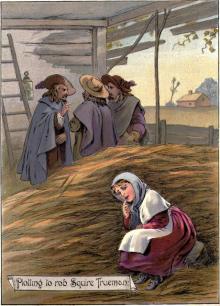 Goody Two-Shoes
Goody Two-Shoes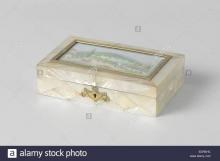 The Pearl Box
The Pearl Box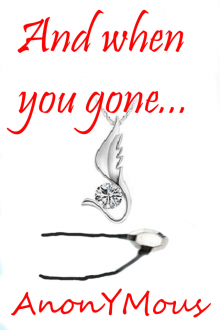 And when you gone...
And when you gone... Stranger At The Other Corner
Stranger At The Other Corner My Young Days
My Young Days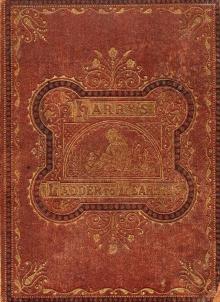 Harry's Ladder to Learning
Harry's Ladder to Learning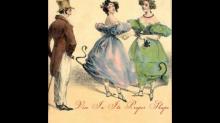 Vice in its Proper Shape
Vice in its Proper Shape_preview.jpg) Promise (the curse)
Promise (the curse)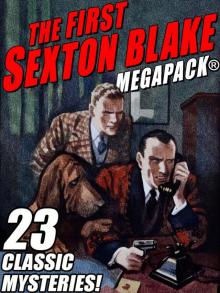 The First Sexton Blake
The First Sexton Blake Golden Moments
Golden Moments Hildebrand; or, The Days of Queen Elizabeth, An Historic Romance, Vol. 2 of 3
Hildebrand; or, The Days of Queen Elizabeth, An Historic Romance, Vol. 2 of 3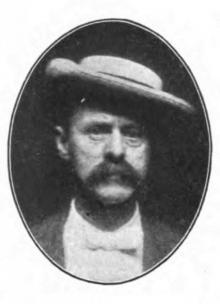 The Ice Queen
The Ice Queen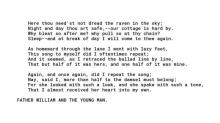 Phebe, the Blackberry Girl
Phebe, the Blackberry Girl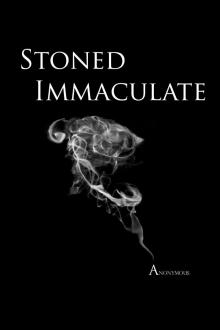 Stoned Immaculate
Stoned Immaculate Hildebrand; or, The Days of Queen Elizabeth, An Historic Romance, Vol. 3 of 3
Hildebrand; or, The Days of Queen Elizabeth, An Historic Romance, Vol. 3 of 3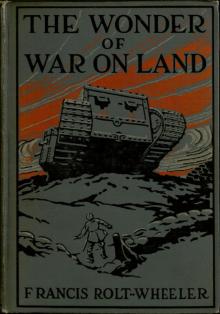 The Wonder of War on Land
The Wonder of War on Land Breaking Bailey
Breaking Bailey The Little Girl Who Was Taught by Experience
The Little Girl Who Was Taught by Experience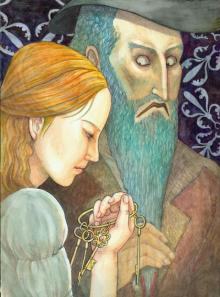 The Popular Story of Blue Beard
The Popular Story of Blue Beard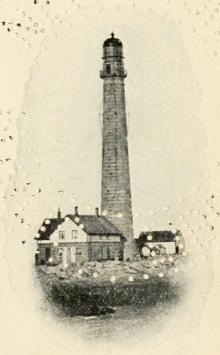 The Life Savers: A story of the United States life-saving service
The Life Savers: A story of the United States life-saving service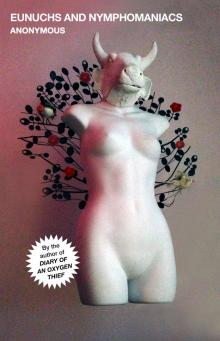 Eunuchs and Nymphomaniacs
Eunuchs and Nymphomaniacs Hildebrand; or, The Days of Queen Elizabeth, An Historic Romance, Vol. 1 of 3
Hildebrand; or, The Days of Queen Elizabeth, An Historic Romance, Vol. 1 of 3 Kitty's Picnic, and Other Stories
Kitty's Picnic, and Other Stories Two Yellow-Birds
Two Yellow-Birds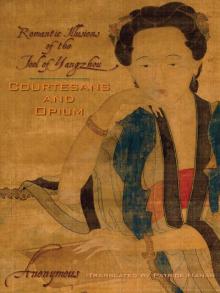 Courtesans and Opium
Courtesans and Opium The Emigrant's Lost Son; or, Life Alone in the Forest
The Emigrant's Lost Son; or, Life Alone in the Forest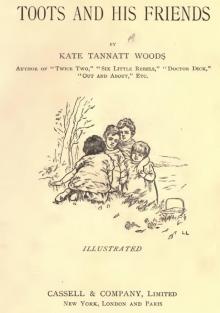 Toots and His Friends
Toots and His Friends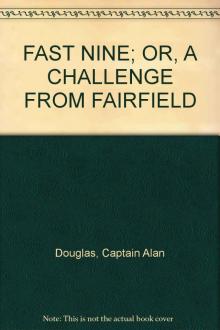 Fast Nine; or, A Challenge from Fairfield
Fast Nine; or, A Challenge from Fairfield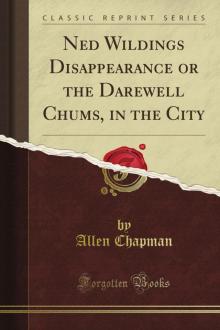 Ned Wilding's Disappearance; or, The Darewell Chums in the City
Ned Wilding's Disappearance; or, The Darewell Chums in the City A Picture-book of Merry Tales
A Picture-book of Merry Tales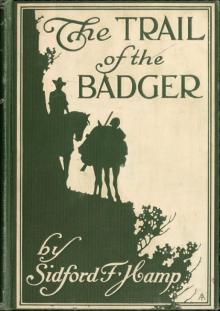 The Trail of The Badger: A Story of the Colorado Border Thirty Years Ago
The Trail of The Badger: A Story of the Colorado Border Thirty Years Ago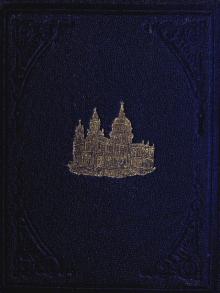 Peter Parley's Visit to London, During the Coronation of Queen Victoria
Peter Parley's Visit to London, During the Coronation of Queen Victoria The Rainbow, After the Thunder-Storm
The Rainbow, After the Thunder-Storm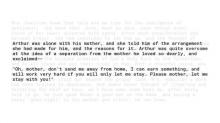 Arthur Hamilton, and His Dog
Arthur Hamilton, and His Dog The Story of the White-Rock Cove
The Story of the White-Rock Cove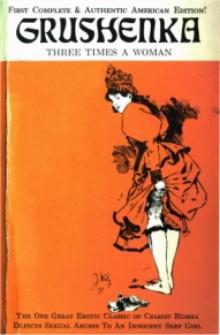 Grushenka. Three Times a Woman
Grushenka. Three Times a Woman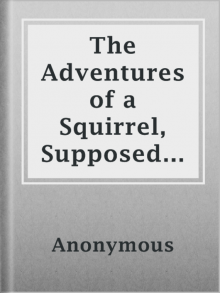 Adventures of a Squirrel, Supposed to be Related by Himself
Adventures of a Squirrel, Supposed to be Related by Himself Falling in Love...Again
Falling in Love...Again The Colossal Camera Calamity
The Colossal Camera Calamity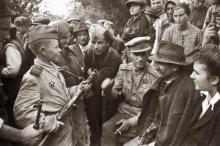 Child of the Regiment
Child of the Regiment Elimination Night
Elimination Night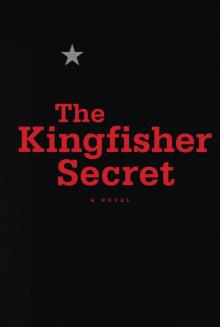 The Kingfisher Secret
The Kingfisher Secret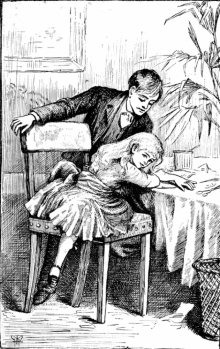 Left to Ourselves; or, John Headley's Promise.
Left to Ourselves; or, John Headley's Promise.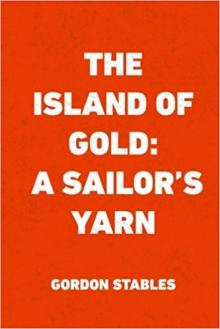 The Island of Gold: A Sailor's Yarn
The Island of Gold: A Sailor's Yarn Adventures of Bobby Orde
Adventures of Bobby Orde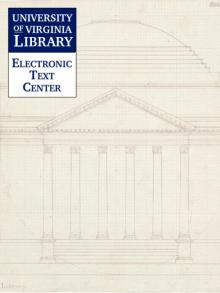 Twain, Mark: Selected Obituaries
Twain, Mark: Selected Obituaries When Love Goes Bad
When Love Goes Bad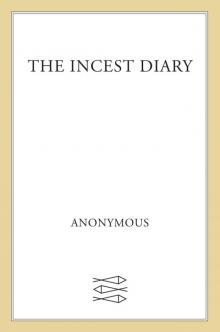 The Incest Diary
The Incest Diary Calling Maggie May
Calling Maggie May The Infidelity Diaries
The Infidelity Diaries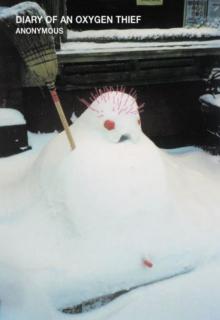 Diary of an Oxygen Thief (The Oxygen Thief Diaries)
Diary of an Oxygen Thief (The Oxygen Thief Diaries) ARABELLA
ARABELLA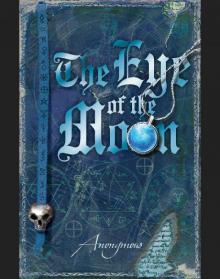 The Eye of the Moon
The Eye of the Moon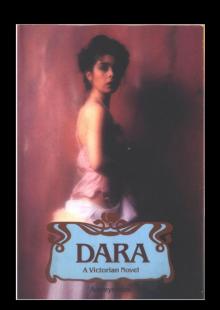 Dara
Dara THE ALTAR OF VENUS: The Making of a Victorian Rake
THE ALTAR OF VENUS: The Making of a Victorian Rake The Book of Death
The Book of Death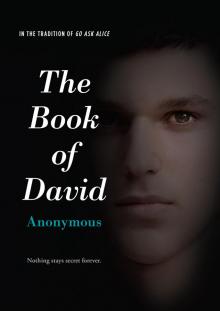 The Book of David
The Book of David The Devil's Graveyard
The Devil's Graveyard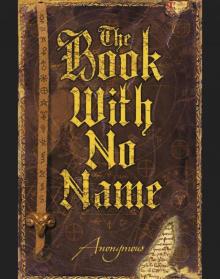 The Book With No Name
The Book With No Name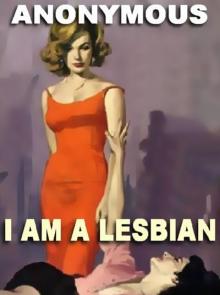 I Am A Lesbian
I Am A Lesbian Njal's Saga
Njal's Saga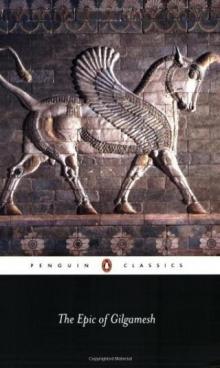 The Epic of Gilgamesh
The Epic of Gilgamesh Darling
Darling Tal, a conversation with an alien
Tal, a conversation with an alien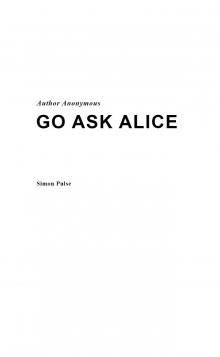 Go Ask Alice
Go Ask Alice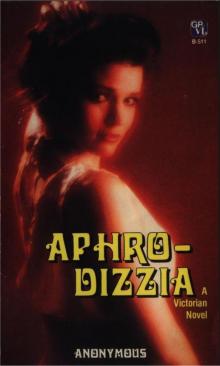 Aphrodizzia
Aphrodizzia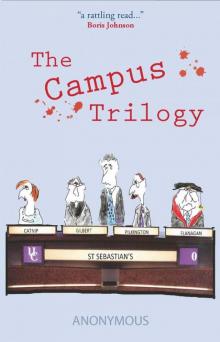 The Campus Trilogy
The Campus Trilogy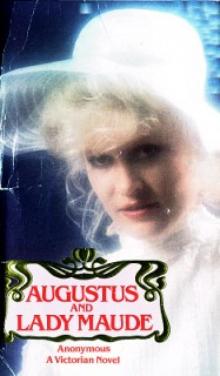 Augustus and Lady Maude
Augustus and Lady Maude Lucy in the Sky
Lucy in the Sky Sight Unseen
Sight Unseen Pleasures and Follies
Pleasures and Follies The Red Mohawk
The Red Mohawk A Fucked Up Life in Books
A Fucked Up Life in Books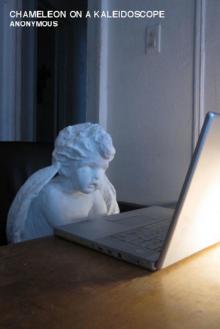 Chameleon On a Kaleidoscope (The Oxygen Thief Diaries)
Chameleon On a Kaleidoscope (The Oxygen Thief Diaries)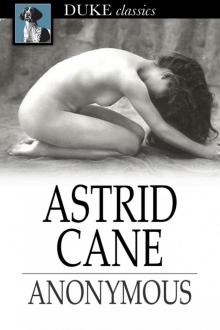 Astrid Cane
Astrid Cane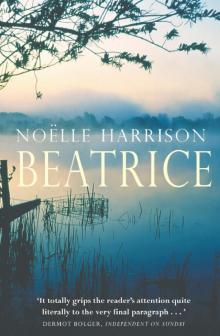 BEATRICE
BEATRICE The Song of the Cid
The Song of the Cid